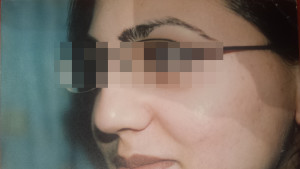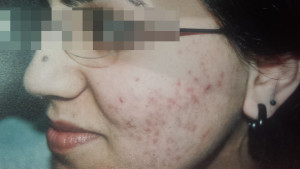Uncategorized
5 Things You Need To Know About Acne Treatment
Most of the people develop mild acne, and that can be easily treated with over the counter medications. However, if you are facing acne that is more severe, then reaching out to a dermatologist would be the best idea you have. This is because; you might end up aggravating your problem than lowering it if you follow any other advice. Also, leaving the acne run its course could leave permanent acne scars or dark spots on the skin area. Therefore, it is always a good option to consult a dermatologist to ensure proper treatment.


Depending on your acne condition, a dermatologist may suggest an oral or topical antibiotic. Antibiotics are known to control bacterial growth and hence, reduce inflammation. Let’s have a look at five acne treatment methods dermatologists use to treat acne –
Intralesional Corticosteroid Injection
If the acne cyst is badly inflamed, there is quite a possibility that it might rupture – leading to scarring on the skin surface. Therefore, to deal with this acne condition, dermatologists usually give a diluted corticosteroid injection to prevent scarring. The injection will boost healing and reduce the inflammation of the cyst. Therefore, this is one of the most effective ways of acne treatment.
Oral Antibiotics
Oral antibiotics are also used by the dermatologists quite often, especially when the cause of acne is p.acnes bacteria. In such a scenario, your dermatologist might prescribe oral antibiotics so that the bacterial growth in controlled and hence, your acne is treated. Although the initial does of oral antibiotics might be high, it gradually comes down with decreasing acne condition.
Oral contraceptives
A majority of women say that taking an oral contraceptive treats their acne quite well. The oral contraceptives work best for some women in controlling the overactive sebum. This is the reason some dermatologists prescribe oral contraceptives as a long-term acne treatment for women. However, care should be taken that only women who have no record of blood-clotting, is a non-smoker and doesn’t have a migraine condition can use this method to treat acne.
Isotretinoin
Isotretinoin is a powerful oral retinoid that is used for treating a severe case of cystic acne. However, dermatologists all over the world also use this method if none of the methods or medications is working in the acne treatment. Isotretinoin is a so powerful medication that just a single course of treatment can treat acne completely, for almost 90% people. The course of treatment runs for about 4-5 months, and your dermatologist might tailor it to suit your condition.
Topical Antimicrobials
The function of this medicine is quite similar to the oral antibiotics we discussed earlier – to control the growth of p.acnes bacteria in your body. Topical antimicrobials are derived from Vitamin A and hence, are an ideal source of acne treatment. The topical antimicrobials work well in reducing the clogging of pores and at the same time, also reduce the growth of p.acnes bacteria in your body.
Therefore, these are some of the acne treatment methods and medications a dermatologist may use to treat your acne, depending on your acne condition and some other factors. But one thing is for sure – getting your acne treated in its early formative stage is the best (and easy) thing to do. To know more about your acne, you may get in touch with one of our HP Dermatology Centre specialists and a get personalised advice about your skin condition today!

